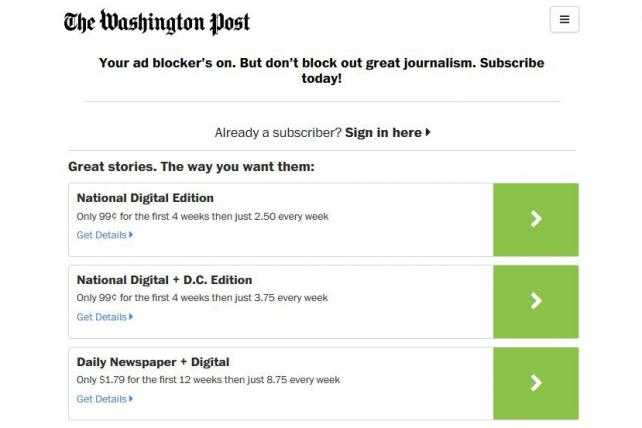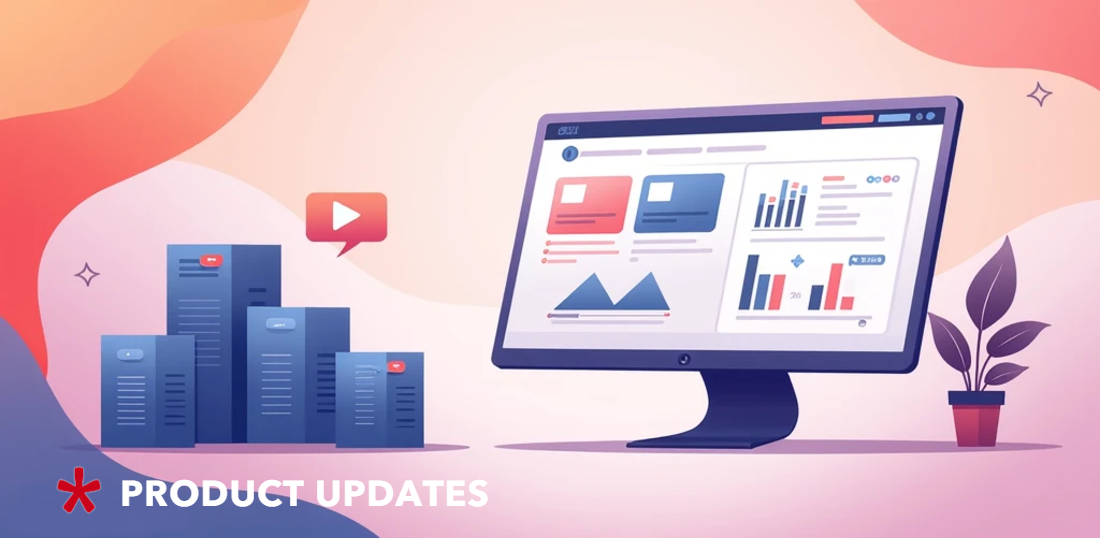Ad blockers start the war, publishers strike back
Let’s try to figure out all ins and outs of the fight between publishers and ad blocker and why everybody is screaming and yelling.
Now, ad blocking isn’t something new at all. Moreover, ads have been blocked ever since 2002, so it’s actually a mainstream now. But for a last three years along with a constant search for the better user experience, usage of the ad blockers became a real problem for publishers and cost them a fortune. According to Adobe research ‘Blocked’ revenue in 2015 in the United States, alone, amounted to about $ 10.7 billion. And this is only beginning. Worldwide provision for 2016 is even worse, ad blockers are expected to cost publishers and advertisers around $41.4 billion.
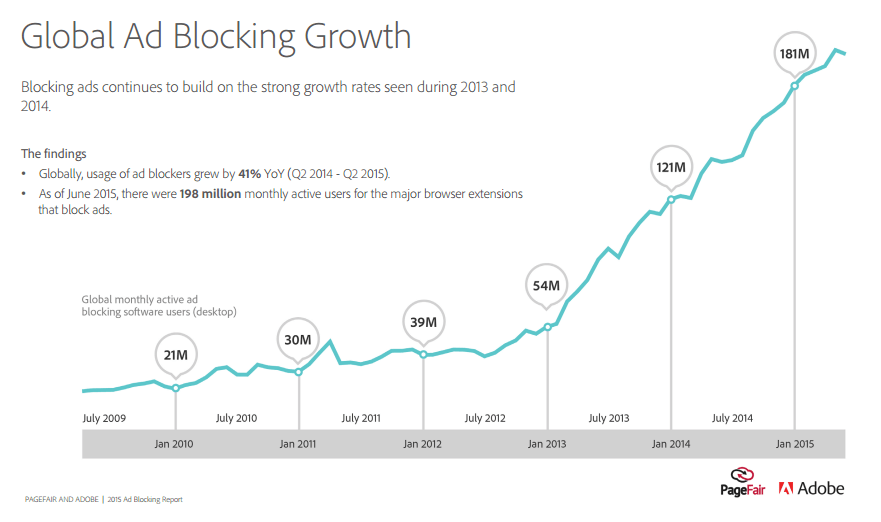
“The cost of ad blocking” PageFair and Adobe 2015 Ad Blocking Report
And Fractl and Moz said 63% of U.S. millennials are using ad blockers. That report was released in July 2015.
Considering that 85 percent of publisher’s revenue comes from ads, this trend became a threat and the reason of fear and accusations. No consensus was found yet, and no one answered a question ‘how to fight a problem without fighting ad blocks themselves?’.
Today more and more publishers are taking actions to prevent further escalation of this battle. Their strategies are very different, but mostly they’re showing their willing to adjust and share their ideas of possible strategies with each other.
Let’s try to categorize those strategies from more to less aggressive.
‘We’ll make courts hear us!’ strategy
Or how we call it ‘You don’t mess with Bild’. The leader of this approach is Axel Springer, the publisher of Bild, Europe’s biggest daily newspaper. His way of dealing with a problem is to fight it with all legal tools available. At first, he lost his case against AdBlock Plus and right after that the court didn’t support him in the same litigation against Blockr. Never the less, Bild continues to make its case to the courts. According to Springer “Now the courts and judges have more of an understanding. We will start to win the cases.”
Bild is not accepting a concept to pay for whitelisting, which can become the best option for some publishers.
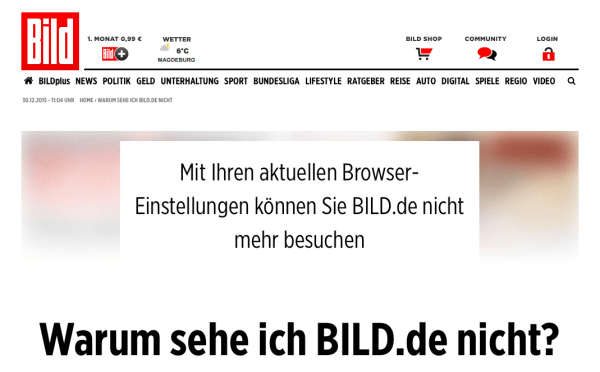
Matthias Dopfner, CEO of Axel Springer told the Financial Times that after implementing a similar block at its newspaper Bild, more than two-thirds of users chose to turn off their ad-blocking software. That meant 3 million more visits that could be monetized through advertising, he said.
‘We’ll make our visitors hear us!’ strategy
Another approach is rather popular now. Publishers are offering users to turn off their ad blockers, whitelist the site or pay a reasonable price for a light-ad experience. Bild found out that it can bring two-thirds of their marketable visits.
Forbes and GQ started to restrict the blockers as well. Visitors using ad blockers are invited to either disable their ad blocker or pay to read content. For instance, GQ magazine charges pay 50 cents to read an article.
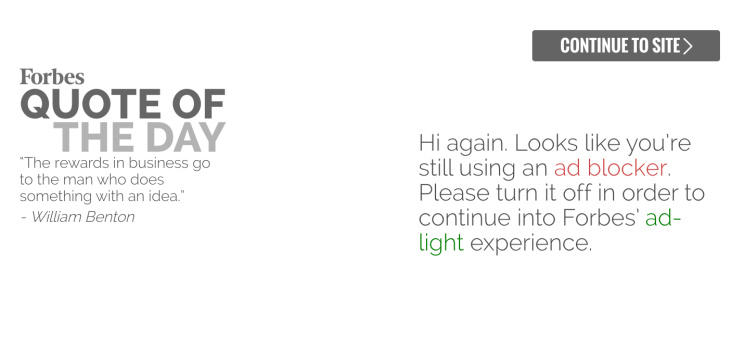
Once an ad blocker is disabled, users are promised the “ad-light experience” for 30 days. According to Google research nearly 44% of our test pool, or a total of 1.6 million visitors, has turned off ad blockers or white listed Forbes content and ads. That’s about 100,000 a day who have turned off their blockers since it was reported a total number of 903,000.
‘We’ll try asking visitors politely’ strategy
Some publishers like The Guardian and Ars Technica, are starting a real conversation with the visitors in order to explain the problem and to find a consensus. The Guardian is trying to negotiate ads content itself offering customized ad experience. But right now it’s not clear what results it brings.

Ars Tecknica in its turn is posting articles to increase everyone’s acknowledgement of the importance of visitors’ cooperation. They’re trying to make it clear how ad blockers hurting the industry and not only cause a decrease in profits, but redundancies and decrease of content quality itself. And as ads revenues go down, many sites will be forced to deal with the advertising of a truly questionable nature by not having other options. One of the publications received 2043 comments, which demonstrates that customers do care.
‘We’ll hear our visitors out’ strategy
All parts of the ad infrastructure – advertisers, agencies, ad tech, publishers have felt an impact made by ad blockers. And because of the fact that it is so hard to deal with this new reality, it is easy to forget about one more part of this infrastructure – ads consumers. Good news is that most of the publishers didn’t.
A real trend among all strategies that are listed is becaming the search of new ways to build both ways dialogs with a visitors and new ways of improving user experience, e.i the real reason why ad blocker problem appeared first place.
Techdirt comes up with an idea that turning off ads shouldn’t cost a price for visitors. But in return, they’re offering to support them in others ways provided as an alternative.
The HuffPost has chosen an approach to eliminate reasons for people to ad block by focusing on the ad experience. It means to catch ads that are dissatisfactory and to make amendments accordingly.
Slate is also eliminating intrusive ads on its site. And they’re planning to suggest visitors to disable ad blockers, with new ads experience ad blockers are no longer needed. Same as Bloomberg LP they’re working on a cleaner suite of brand marketing messages, less animation and lower-case fonts.
SpanishDict started a real dialog with visitors, asking how they as publishers can improve the experience and launched a tool to gather ad feedback that can be used to remove an ad or block the advertiser.
What’s next
In 2016 publishers find themselves in pioneering new frontiers of improvements, conversations and compromises. Yes, Bild is an exception. They will continue to experimenting with different strategies and approaches to tackle ad blocking.
Are you interested in website monetization? Learn more about our ad serving solution Admixer.Publisher!

